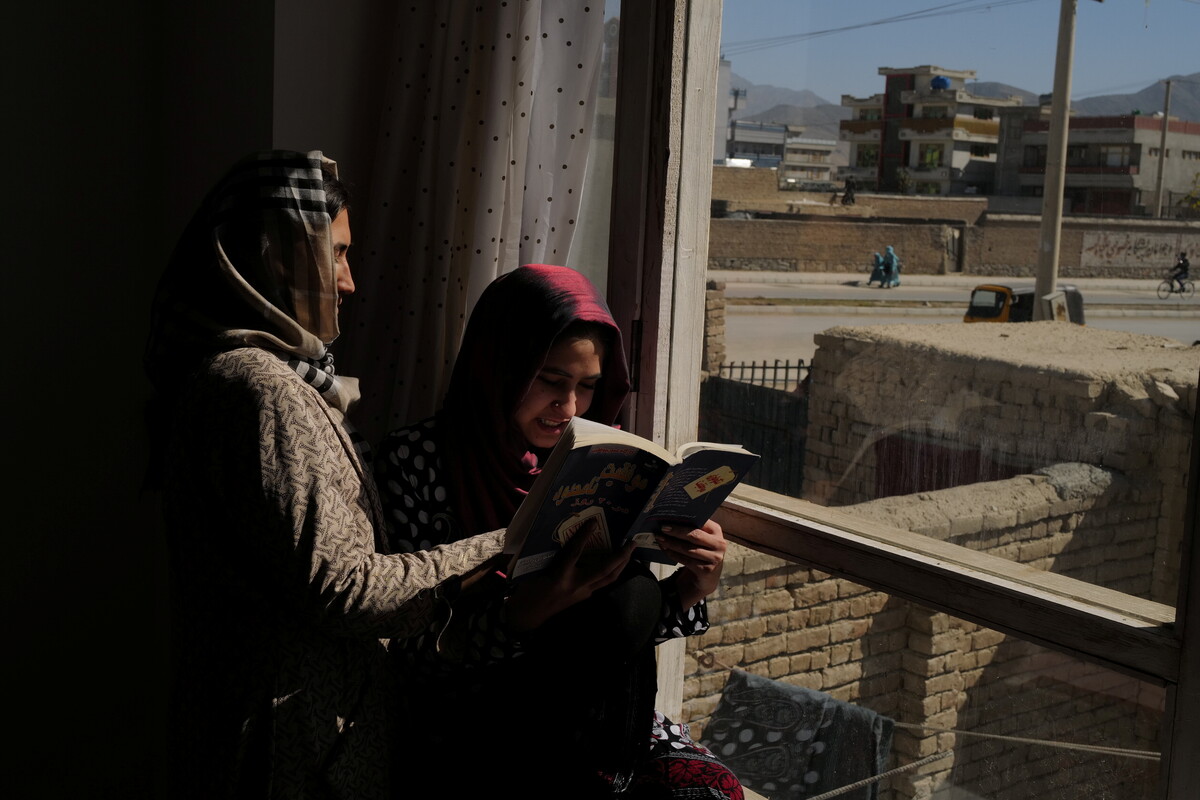
- Home
- >
- what we do
- >
- afghani...
Afghanistan Crisis
The Taliban’s takeover of power in August 2021 was a traumatic experience for many people in Afghanistan, who had got used to a very different way of life over the previous twenty years. The previous legal framework evaporated, and there were widespread reports of people being randomly beaten in the streets for supposed minor transgressions, suffering summary ‘justice’ at police stations, or just disappearing. Some academics were murdered. Meanwhile, the economic situation in the country slid from dire to catastrophic. Drought, a falling currency and rising prices combined to put basic foodstuffs beyond the reach of many.

Hawa, 20, a third-year university student, reads with her sister at the window of their home in Kabul, Afghanistan, in October 2021. Like most other Afghan girls and young women, Hawa has not been allowed to return to her studies since the Taliban seized power in mid-August. "In this situation, I do not see my dreams coming true." REUTERS/Zohra Bensemra
Afghanistan’s 30+ public universities were closed in August 2021; most eventually re-opened in February 2022, but the Taliban did not hide their hostility towards academics who had previously worked with Western universities and academic colleagues. Academic work was made completely subservient to the Taliban's narrow world view and, in December 2022, the Taliban announced that women were barred from universities with immediate effect.
Against this background, we received hundreds of urgent appeals for help from Afghan academics in the first few months after the fall of Kabul, and more are still arriving. Fortunately, we have received many generous offers of funded places from UK universities, and we have taken on extra staff to help us work our way through the applications as quickly as possible. The matching process is complex, and every case is different, particularly when so many of them involve family groups, not just single individuals; and there is a limit to how much we can do until the applicant and all family members travelling with them have passports and are able to get to a neighbouring country where they can apply for UK visas. Despite all the difficulties, however, some 60 Afghan Cara Fellows have so far (February 2025) received their visas and arrived in the UK, most of them with their families. We are continuing to take forward as many cases as possible.
We would like to thank all those who have been in contact with offers of support and donations, including those universities who have felt able to increase the annual subscriptions they pay or to provide other additional funds; the sudden rush of extra work, means that our costs are rising sharply. If you are able to donate to support our efforts please donate online.
We have also produced a Funding Directory to help Afghan academics looking for support – a copy can be downloaded here.
